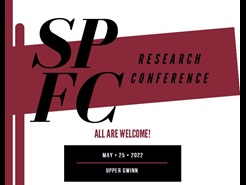Faculty-Student Collaboration
1
Loading...
Faculty Sponsor(s)
Joel Jin
Primary Department
Clinical Psychology
Description
We hypothesized that God perfectionism is a causal pathway of intrinsic religiosity improving life satisfaction due to higher standards from God. Christian college students were surveyed on perceived perfectionism from God, perceived discrepancy from God, intrinsic religiosity, and satisfaction with life. Analyses indicated that intrinsic religiosity predicts life satisfaction (b = .33, p = .0183). However, when considering the indirect effect through both mediators, intrinsic religiosity was not significantly associated with life satisfaction (c’ = .21, p = .14). Results illustrate how intrinsic religiosity can affect life satisfaction based on one’s personal perception of God’s standards and discrepancies.
Copyright Status
http://rightsstatements.org/vocab/InC/1.0/
Additional Rights Information
Copyright held by author(s).
God perfectionism as a mediator of intrinsic religiosity and life satisfaction
We hypothesized that God perfectionism is a causal pathway of intrinsic religiosity improving life satisfaction due to higher standards from God. Christian college students were surveyed on perceived perfectionism from God, perceived discrepancy from God, intrinsic religiosity, and satisfaction with life. Analyses indicated that intrinsic religiosity predicts life satisfaction (b = .33, p = .0183). However, when considering the indirect effect through both mediators, intrinsic religiosity was not significantly associated with life satisfaction (c’ = .21, p = .14). Results illustrate how intrinsic religiosity can affect life satisfaction based on one’s personal perception of God’s standards and discrepancies.


